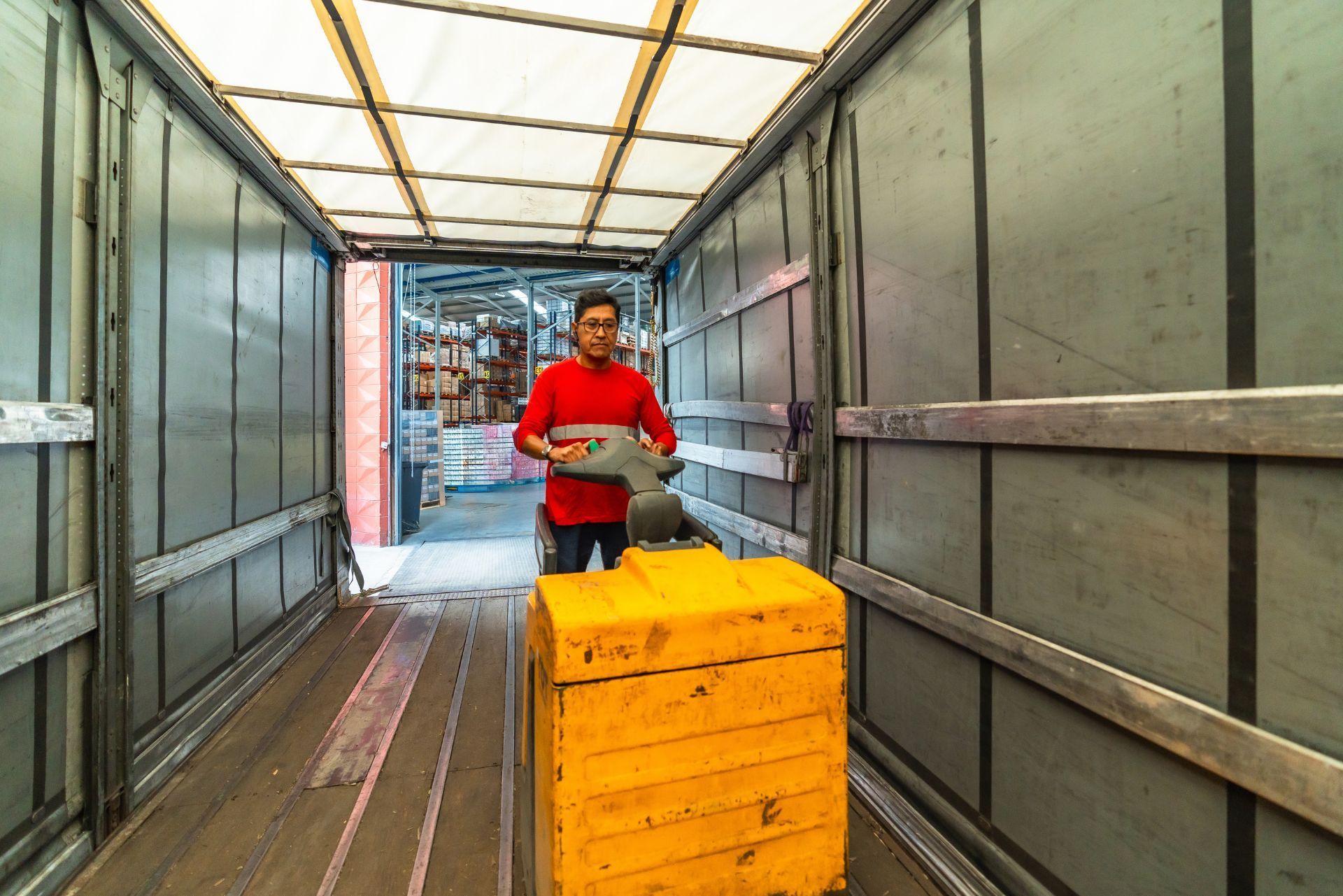Top 3 Recommended Policies

In the bustling world of logistics and transportation, refrigerated delivery plays a crucial role, especially in Florida where the demand for perishable goods is high. However, with this responsibility comes the need for adequate insurance coverage. Understanding Florida refrigerated delivery insurance is essential for businesses engaged in this sector. This article delves into the intricacies of refrigerated delivery insurance, covering its importance, types, requirements, and more.
Understanding Refrigerated Delivery
Refrigerated delivery refers to the transportation of temperature-sensitive goods, such as food, pharmaceuticals, and other perishable items. This method ensures that products remain within a specific temperature range during transit, preserving their quality and safety. The technology behind refrigerated delivery has evolved significantly over the years, incorporating advanced monitoring systems that track temperature and humidity levels in real-time. This innovation not only enhances the reliability of the delivery process but also provides peace of mind to both suppliers and consumers, knowing that their products are being handled with the utmost care.
The Importance of Refrigerated Delivery
The significance of refrigerated delivery cannot be overstated. Many businesses rely on this service to maintain the integrity of their products. For instance, restaurants, grocery stores, and healthcare facilities depend on timely and safe delivery of perishable goods. A failure in the refrigeration process can lead to spoilage, financial loss, and even health risks for consumers. Moreover, as the demand for fresh and organic produce continues to rise, the need for efficient refrigerated delivery systems becomes even more critical. This ensures that fruits and vegetables retain their nutritional value and flavor, ultimately enhancing the dining experience for consumers.
Challenges in Refrigerated Delivery
While refrigerated delivery is vital, it comes with its own set of challenges. These can include equipment malfunctions, temperature fluctuations, and logistical issues. Each of these challenges can jeopardize the safety and quality of the products being transported. Therefore, having the right insurance coverage is essential to mitigate these risks. Additionally, the complexity of supply chains can pose further difficulties, especially when coordinating deliveries across multiple locations or during peak seasons. Companies must invest in training their staff and implementing robust protocols to ensure that every link in the supply chain is equipped to handle the unique demands of refrigerated transport, thereby minimizing the risk of costly errors and maintaining consumer trust.

The Role of Insurance in Refrigerated Delivery
Insurance serves as a safety net for businesses involved in refrigerated delivery. It provides financial protection against various risks associated with transporting perishable goods. Without adequate insurance, companies may face significant financial burdens in the event of loss or damage to their products. This is particularly crucial in the food industry, where the quality and safety of goods are paramount. In a sector where consumer trust is hard-earned, having comprehensive insurance can also enhance a company's reputation, signaling to clients that they prioritize risk management and product integrity.
Types of Risks Covered
Florida refrigerated delivery insurance typically covers a range of risks, including:
- Product Spoilage: This occurs when goods are exposed to improper temperatures, leading to spoilage. The financial implications can be staggering, especially for high-value items such as seafood or organic produce.
- Theft: Refrigerated trucks can be targets for theft, making coverage against this risk essential. Given the high value of the goods often transported, businesses must ensure they are protected from potential losses that could arise from theft during transit or at loading docks.
- Accidental Damage: Goods can be damaged during transit due to accidents or mishandling. This includes everything from minor bumps that can lead to product degradation to major collisions that could result in total loss.
Why Florida-Specific Insurance Matters
Florida's unique climate and regulations necessitate specialized insurance coverage. The high humidity and heat can exacerbate the risks associated with refrigerated delivery. For instance, even a brief malfunction in refrigeration equipment can lead to rapid spoilage, making it essential for businesses to have insurance that specifically addresses these environmental challenges. Additionally, local laws may dictate specific insurance requirements, making it critical for businesses to understand these nuances. Florida's diverse geography, from coastal areas to inland regions, also means that delivery routes can vary significantly, impacting both the risks involved and the insurance needed. Understanding these factors can help businesses tailor their insurance policies to better suit their operational needs and mitigate potential losses effectively.
Types of Refrigerated Delivery Insurance
There are several types of insurance policies available for businesses engaged in refrigerated delivery. Each type offers different levels of coverage and protection, ensuring that companies can operate with confidence in the face of various risks associated with transporting temperature-sensitive goods.
General Liability Insurance
This is a foundational insurance policy that protects businesses against claims of bodily injury or property damage. For refrigerated delivery companies, this can cover incidents that occur during the delivery process, such as accidents involving the delivery vehicle. Additionally, general liability insurance can also address claims arising from slip-and-fall accidents at the business premises or during the loading and unloading of goods. This comprehensive coverage is essential for safeguarding the company’s financial stability and reputation.
Cargo Insurance
Cargo insurance is specifically designed to protect the goods being transported. This policy covers loss or damage to the cargo due to various risks, including theft, accidents, and spoilage. It is essential for businesses that transport perishable goods to have this coverage to safeguard their products. Furthermore, some cargo insurance policies offer specialized coverage for specific types of goods, such as pharmaceuticals or food items, which may require stricter temperature controls. This tailored approach ensures that businesses can meet industry standards while protecting their valuable inventory.
Refrigerated Truck Insurance
Refrigerated truck insurance provides coverage for the vehicles used in refrigerated delivery. This includes protection against accidents, theft, and damage to the refrigeration unit. Ensuring that the delivery vehicles are adequately insured is crucial for maintaining operational efficiency. In addition to standard coverage, businesses may also consider adding endorsements that cover the loss of income due to vehicle downtime, ensuring that they can continue to meet customer demands even in the event of an accident or mechanical failure. This type of insurance not only protects the physical assets but also supports the overall business continuity strategy.
Factors Influencing Insurance Costs

The cost of refrigerated delivery insurance can vary significantly based on several factors. Understanding these factors can help businesses make informed decisions when selecting insurance policies.
Type of Goods Transported
The type of goods being transported plays a significant role in determining insurance costs. High-value items or those that are particularly prone to spoilage may result in higher premiums due to the increased risk. For instance, perishables like seafood, dairy products, and pharmaceuticals not only require strict temperature controls but also have a shorter shelf life, making them more susceptible to loss. Additionally, specialized handling requirements for certain goods can further complicate the insurance landscape, necessitating tailored coverage options that can drive up costs.
Distance and Route
The distance of the delivery route and the specific areas being serviced can also impact insurance costs. Longer routes or those through high-risk areas may lead to higher premiums as the likelihood of incidents increases. Moreover, routes that involve challenging terrains or adverse weather conditions can pose additional risks, prompting insurers to adjust their rates accordingly. Companies that frequently navigate urban environments with heavy traffic may also face increased premiums due to the higher chances of accidents or delays, which can affect the integrity of the refrigerated goods being transported.
Business History and Claims Record
A company’s history, including its claims record, can influence insurance costs. Businesses with a history of frequent claims may face higher premiums, while those with a clean record may benefit from lower rates. Insurers often assess not only the frequency of claims but also the severity, as significant losses can indicate potential future risks. Furthermore, companies that actively engage in risk management practices, such as regular training for drivers on safe handling and temperature monitoring, may find themselves in a better position to negotiate lower premiums. This proactive approach not only reflects positively on their claims history but also demonstrates a commitment to maintaining the integrity of the goods they transport, thereby fostering trust with insurers.
Legal Requirements for Refrigerated Delivery Insurance in Florida
Florida has specific legal requirements for businesses involved in refrigerated delivery. Understanding these requirements is essential for compliance and to avoid potential legal issues. The state’s warm climate necessitates strict regulations to ensure that perishable goods are transported safely and efficiently, safeguarding both public health and business integrity.
Minimum Insurance Coverage
Florida law mandates minimum insurance coverage for commercial vehicles, including those used for refrigerated delivery. Businesses must ensure that they meet these minimum requirements to operate legally. Typically, this includes liability coverage that protects against damages resulting from accidents, as well as cargo insurance to cover losses related to spoiled goods due to equipment failure or accidents. It is advisable for businesses to consult with an insurance professional to tailor their coverage to their specific operational needs, as the costs associated with spoilage can far exceed basic coverage limits.
Licensing and Permits
In addition to insurance, businesses involved in refrigerated delivery must obtain the necessary licenses and permits. This may include health permits for transporting food products and commercial vehicle registrations. The Florida Department of Agriculture and Consumer Services plays a crucial role in regulating food safety, and businesses must comply with their guidelines to ensure that all transported goods meet health standards. Furthermore, regular inspections may be required to maintain these permits, emphasizing the importance of adhering to both state and federal regulations regarding food safety and transportation.
Moreover, businesses should be aware that certain local jurisdictions may impose additional requirements or regulations on refrigerated delivery services. For instance, municipalities may have specific zoning laws or operational hours that affect delivery routes and times. Engaging with local regulatory bodies can provide valuable insights into these additional requirements, ensuring that businesses remain compliant and avoid any disruptions in their operations. Additionally, maintaining proper documentation and records related to deliveries can be beneficial not only for compliance but also for enhancing customer trust and satisfaction.

Choosing the Right Insurance Provider
Selecting the right insurance provider is a critical decision for businesses engaged in refrigerated delivery. The right provider can offer tailored solutions that meet specific needs, ensuring that perishable goods are protected from unforeseen circumstances. This is particularly important in an industry where temperature control is paramount, and any lapse in coverage can lead to significant financial losses.
Researching Insurance Providers
When looking for an insurance provider, it is essential to conduct thorough research. This includes reviewing customer feedback, comparing coverage options, and assessing the financial stability of the company. Additionally, businesses should consider the provider's experience in the refrigerated delivery sector. A provider with a proven track record in this niche will likely understand the unique challenges faced by businesses in this field, allowing for more customized and effective insurance solutions.
Understanding Policy Terms
Before committing to an insurance policy, businesses should carefully read and understand the terms and conditions. This includes knowing what is covered, any exclusions, and the claims process. Understanding these details can prevent surprises in the event of a claim. It's also beneficial to inquire about additional endorsements or riders that can enhance coverage, such as protection against spoilage due to equipment failure or coverage for lost income during downtime. These factors can significantly impact the overall risk management strategy of a refrigerated delivery operation.
Consulting with Experts
Consulting with insurance experts or brokers can provide valuable insights into the best coverage options available. These professionals can help businesses navigate the complexities of refrigerated delivery insurance and find policies that align with their needs. Furthermore, they can assist in evaluating the adequacy of existing coverage and recommend adjustments as the business grows or changes. Engaging with an expert can also lead to better negotiation outcomes, potentially resulting in lower premiums or enhanced coverage terms that would not be available through direct purchasing.
Common Misconceptions About Refrigerated Delivery Insurance
There are several misconceptions surrounding refrigerated delivery insurance that can lead to confusion. Addressing these misconceptions can help businesses make informed decisions.
“All Insurance Policies Are the Same”
One common misconception is that all insurance policies are identical. In reality, coverage can vary significantly between providers and policies. It is crucial for businesses to compare options and choose a policy that meets their specific needs.
“Insurance Is Not Necessary for Small Businesses”
Another misconception is that small businesses do not need insurance. Regardless of size, every business involved in refrigerated delivery faces risks that can lead to significant financial loss. Insurance is a crucial safeguard for businesses of all sizes.
Best Practices for Refrigerated Delivery
To minimize risks and ensure the safe transportation of perishable goods, businesses should implement best practices in refrigerated delivery.
Regular Maintenance of Refrigeration Equipment
Regular maintenance of refrigeration units is essential to prevent equipment failure. This includes routine checks, cleaning, and servicing to ensure that the units are functioning optimally.
Training for Drivers
Providing training for drivers on how to handle refrigerated goods is vital. This includes understanding temperature controls, proper loading techniques, and emergency procedures in case of equipment failure.
Monitoring Temperature During Transit
Utilizing technology to monitor temperatures during transit can help ensure that goods remain within the required temperature range. This not only protects the products but also provides documentation in case of disputes regarding spoilage.
Conclusion
Florida refrigerated delivery insurance is a critical component for businesses involved in transporting perishable goods. Understanding the types of coverage available, legal requirements, and best practices can help businesses safeguard their operations and maintain the quality of their products. By investing in the right insurance and implementing effective strategies, companies can navigate the complexities of refrigerated delivery with confidence.
As the demand for refrigerated delivery continues to grow, staying informed about insurance options and industry best practices will be essential for success. Whether a small business or a large operation, having the right coverage can make all the difference in protecting assets and ensuring customer satisfaction.
Contact Us


